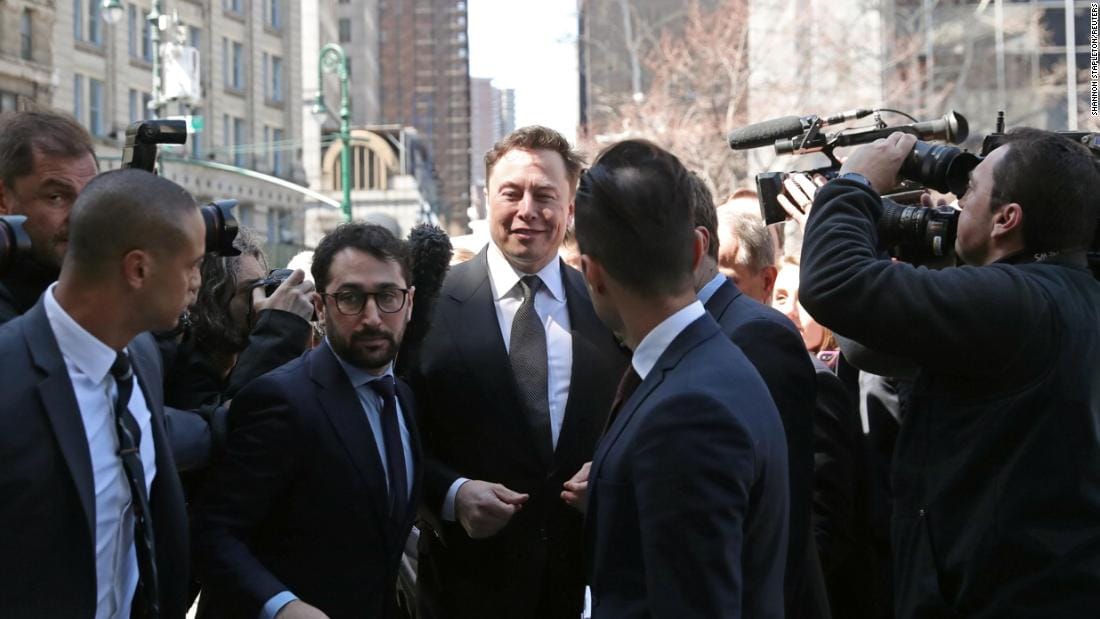Elon Musk, the enigmatic billionaire known for his leadership of Tesla, SpaceX, and other technological ventures, has always been a polarizing figure. With his rapid-fire tweets and high-stakes business decisions, he often finds himself at the center of both adoration and legal scrutiny. However, in the hypothetical scenario that Elon Musk were to outright defy a court order, it could initiate a chain reaction with serious legal and constitutional consequences, raising profound questions about the role of the judiciary, enforcement mechanisms, and Musk’s ability to navigate uncharted waters of opposition.
The judiciary stands as one of the three pillars of the U.S. government, tasked with ensuring the rule of law. If Musk—or anyone else—chooses to defy a court mandate, the potential response from judicial and governmental entities could escalate rapidly to protect the integrity of the system. While Musk has been embroiled in lawsuits ranging from securities fraud allegations to business disputes, the issue of personal defiance of a court order has not yet taken center stage. Here, we explore the mechanisms and consequences that would likely follow such a defiant act.
Legal and Financial Penalties
One of the foremost consequences of defying a court order is the imposition of financial penalties. In civil and criminal cases, U.S. courts have broad discretion to levy fines on individuals or corporations who fail to comply. These penalties can range from daily fines accruing over the period of non-compliance to one-time punitive damages designed to compel cooperation. In Musk’s case, given his substantial wealth, courts may be inclined to set penalties at levels designed to be genuinely impactful.
Beyond fines, courts could order the seizure of assets if Musk fails to comply with a court ruling. This might include shares in Tesla, SpaceX, or his other enterprises. For instance, if a court determines that a transfer or liquidation of these holdings is necessary to settle a judgment or force compliance, it could appoint a receiver to oversee the process. This kind of intervention would not only disrupt Musk’s financial empire but could also alienate shareholders and stakeholders in his business ventures.
Contempt of Court and Potential Incarceration
If Musk persistently refused to adhere to court orders, he could be held in contempt of court. Civil contempt sanctions are typically designed to compel compliance, whereas criminal contempt can result in fines or imprisonment as punishment for defying judicial authority. While it is rare for high-profile individuals like Musk to face incarceration in such cases, the judiciary has historically not shied away from jailing even prominent figures to maintain the integrity of the law.
For Musk, jail time would be an extraordinary escalation that could send shockwaves through the industries he leads. Even the possibility of temporary confinement would underscore the judiciary’s resolve to enforce its authority, regardless of the social or economic stature of those involved.
Damage to Reputation and Business Interests
While Musk’s defiance of the law might resonate with certain segments of his fanbase who perceive him as a “disruptor,” the broader implications could severely tarnish his reputation. Ignoring a court order could alienate partners, investors, and governments, most of whom value adherence to the rule of law as a prerequisite for stable cooperation. Businesses tied to Musk might face boycotts or find it challenging to access traditional funding mechanisms, creating ripple effects that extend beyond Musk’s personal wealth.
Further, Musk’s leadership across companies like Tesla and SpaceX relies on perception as much as performance. If a court defiance incident were to escalate, it could lead to board questions about Musk’s effectiveness in an environment where he becomes a liability rather than an asset. This could destabilize business operations and stock valuations, deterring future investments.
Constitutional and Broader Implications
A refusal to comply with judicial orders by someone as high-profile as Musk would likely spark a broader constitutional debate. Specifically, it would bring into question the mechanisms available to enforce court rulings against influential billionaires or corporations. In the United States, the judiciary’s authority is premised on its ability to function independently and enforce its rulings impartially.
Critics, however, might highlight systemic inequities, suggesting that figures like Musk might exploit legal loopholes or delayed enforcement mechanisms to evade accountability. Such scenarios could lead to calls for legislative reforms aimed at strengthening judicial enforcement capabilities, balancing power across societal hierarchies.
Furthermore, Musk’s defiance would serve as a global case study in the interaction between wealth, influence, and the rule of law. It would highlight how courts respond to challenges from individuals who wield immense personal and corporate power, setting precedents for legal battles involving other high-net-worth individuals.
The Stakes for Musk, Courts, and Society
Musk’s hypothetical defiance of a court order would undoubtedly be a rare and dramatic event, stressing the judicial system’s ability to enforce accountability fairly and consistently. For Musk personally, the stakes would involve not just his businesses but also his legacy as an innovator and entrepreneur. For the judiciary, it would constitute a critical test of its authority and procedures, one that could influence public trust and confidence in a fair legal system.
Ultimately, whether Musk chooses to adhere to court rulings or test their limits in an unprecedented manner, the implications are vast and multifaceted. From financial penalties to reputational harm and systemic challenges, the consequences would extend far beyond Musk himself, offering lessons for how societies manage accountability at the intersection of ambition, power, and the rule of law.



